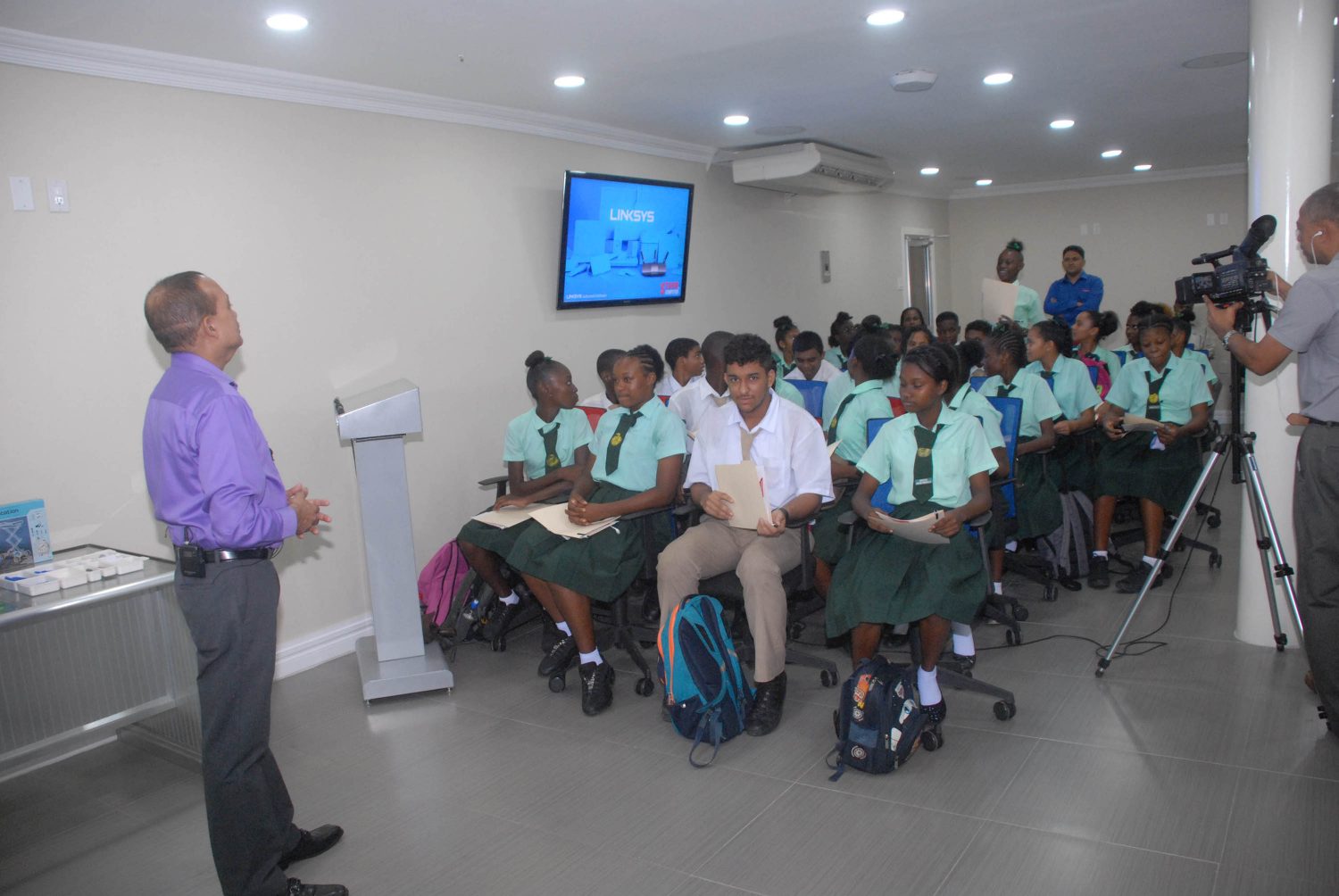This past week students from a number of state-run secondary schools have been hosted by the local information technology firm Starr Computers as part of a commitment given by the management of the company to contribute to filling what the company’s Chief Executive Officer Michael Mohan describes as the “critical technology gap” the exists between Guyana and the developed world.
This week Mohan is taking time off from his substantive pursuits as head of one of the country’s technology marketing companies to play host to groups of schoolchildren drawn from a number of state schools to deliver a series of lectures based on the theme “The Fourth Industrial Revolution.” Up to yesterday, the Starr Computers’ Brickdam complex had hosted groups of students from various Secondary Schools including Charlestown Secondary, President’s College and St. Joseph’s High School to engage Mohan on his Fourth Industrial Revolution presentation and to familiarize themselves with the company’s hi-tech environment. Today’s encounter will see Mohan hosting staff of the Ministry of Education’s National Centre for Research and Development. (NCERD).
Earlier this week Mohan told Stabroek Business that his Fourth Industrial Revolution presentation was intended to broaden local awareness of global technology advancements and to engage in discussions “particularly with learning institutions” about the need to access that technology and adapt it to suit our local developmental needs.
A frequent traveller between Guyana and the United States, Mohan told Stabroek Business that “being in two places” has given him an interesting perspective on the role that advanced technology can play in Guyana’s development. “I have decided to work with schools and with children because I believe that they are the ones who have to take this country forward and must know about emerging technology and how to apply it. He said that while there was a great deal of work to be done “to raise the children’s knowledge base,” all of his exchanges with the students had suggested that there was an eagerness to learn.
“In this technological age, we cannot afford to leave our young people behind,” Mohan said.
The Guyanese businessman told Stabroek Business that his own exposure to technology had caused him to appreciate the launch of the STEM Guyana initiative and the good work that the organization had done in terms of its performance at the Washington Robotics Competition earlier this year. He asserted that Guyana’s performance at what, in effect, was a global competition deserved the support and backing of the entire country. Mohan told Stabroek Business that Starr Computers was committed to providing such support as it can for the STEM Guyana initiative, asserting that the company had already engaged members of the group and was seeking to work with them in pursuit of their objectives at the level of schoolchildren. He said that Starr has already begun to seek out various practical ways of supporting the work of STEM Guyana in raising the local level of technological awareness at both the school and community levels.
According to Mohan, given the fact that Guyana is likely to be faced, sooner rather than later, with an oil and gas economy, it was not just a question of merely infusing technology into the schools’ curriculum but becoming familiar with the technology tools necessary for the management of an oil and gas economy.






